 First edition | |
| Author | L. P. Hartley |
|---|---|
| Language | English |
| Genre | Drama |
| Publisher | Hamish Hamilton |
Publication date | 1955 |
| Media type | |
A Perfect Woman is a 1955 novel by the British writer L. P. Hartley. [1]
 First edition | |
| Author | L. P. Hartley |
|---|---|
| Language | English |
| Genre | Drama |
| Publisher | Hamish Hamilton |
Publication date | 1955 |
| Media type | |
A Perfect Woman is a 1955 novel by the British writer L. P. Hartley. [1]
Harold Eastwood, an accountant, and unimaginative, meets Alex Goodrich, a well-known novelist, on a train, and agrees to take on his tax affairs. When Alec comes to visit, he is immediately smitten by Irma, an Austrian barmaid in a local pub, and Isabel Eastwood, Harold's wife, is immediately smitten by him. She believes it is her duty to procure Irma for Alec. Harold finds the idea initially rather shocking, but Isabel manages to persuade him that it will benefit both parties, providing a better life for Irma and improving Alec's novels, which have been criticised for being too full of unpleasant, bitter women.
So Harold agrees to ask Irma to dinner, and soon he starts an affair with her. Isabel, meanwhile, has a relationship with Alec, and spends increasing amounts of time with him in London. Initially the marriage rather benefits fron this. Harold becomes a great deal more cheerful, even playful, and Isabel is grateful for this. But when Isabel gets hold of the manuscript of Alec's latest novel, things take a dramatic and alarming turn.

Enoch Arnold Bennett was an English author, best known as a novelist. He was a prolific writer: between the start of his career in 1898 and his death he completed 34 novels, seven volumes of short stories, 13 plays, and a daily journal totalling more than a million words. He wrote articles and stories for more than 100 different newspapers and periodicals, worked in and briefly ran the Ministry of Information in the First World War, and wrote for the cinema in the 1920s. The sales of his books were substantial, and he was the most financially successful British author of his day.

Tess of the d'Urbervilles: A Pure Woman Faithfully Presented is a novel by Thomas Hardy. It initially appeared in a censored and serialised version, published by the British illustrated newspaper The Graphic in 1891, then in book form in three volumes in 1891, and as a single volume in 1892. Though now considered a major 19th-century English novel, even Hardy's fictional masterpiece, Tess of the d'Urbervilles received mixed reviews when it first appeared, in part because it challenged the sexual morals of late Victorian England. Tess was portrayed as a fighter not only for her rights, but also for the rights of others.
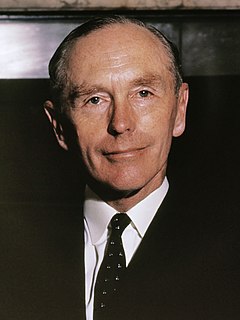
Alexander Frederick Douglas-Home, Baron Home of the Hirsel, was the Prime Minister of the United Kingdom from 1963 to 1964. He was the only British prime minister born during the Edwardian era, and the last to hold office while a member of the House of Lords, before disclaiming his peerage and taking up a seat in the House of Commons for the remainder of his premiership. His reputation, however, rests more on his two periods serving as Britain's foreign minister than on his brief premiership.

The Portrait of a Lady is a novel by Henry James, first published as a serial in The Atlantic Monthly and Macmillan's Magazine in 1880–81 and then as a book in 1881. It is one of James's most popular novels and is regarded by critics as one of his finest.

Joanna Trollope is an English writer. She has also written under the pseudonym of Caroline Harvey. Her novel Parson Harding's Daughter won in 1980 the Romantic Novel of the Year Award by the Romantic Novelists' Association.
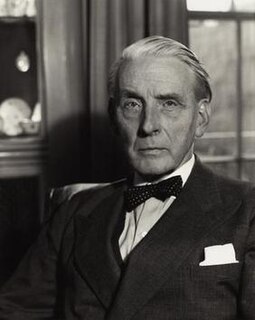
Charles Langbridge Morgan was a British playwright and novelist of English and Welsh parentage. The main themes of his work were, as he himself put it, "Art, Love, and Death", and the relation between them. Themes of individual novels range from the paradoxes of freedom, through passionate love seen from within and without, to the conflict of good and evil and the enchanted boundary of death (Sparkenbroke). He was the husband of Welsh novelist Hilda Vaughan.

Zorro is a 2005 novel by Chilean author Isabel Allende. Its subject is the pulp hero Diego de la Vega, better known as El Zorro, who was featured in an early 20th-century novel.
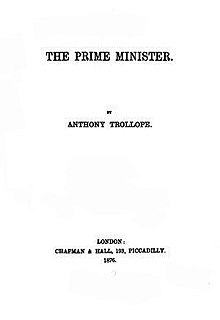
The Prime Minister is a novel by Anthony Trollope, first published in 1876. It is the fifth of the "Palliser" series of novels.
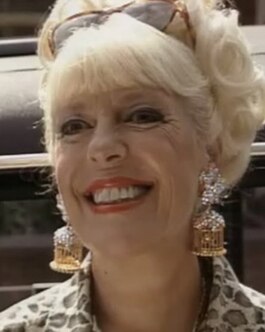
Bet Lynch is a fictional character from the British ITV soap opera Coronation Street. Portrayed by Julie Goodyear, the character first appeared on screen during the episode airing on Monday 25 May 1966. Appearing over 25 years, Bet became a Coronation Street icon.
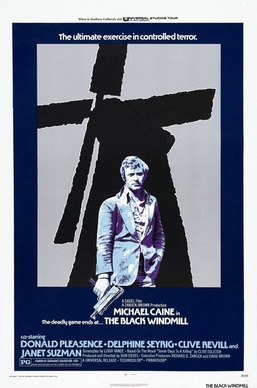
The Black Windmill is a 1974 British spy thriller film directed by Don Siegel and starring Michael Caine, John Vernon, Janet Suzman and Donald Pleasence. It was produced by Richard D. Zanuck and David Brown.

The Razor's Edge is a 1946 American drama film based on W. Somerset Maugham's 1944 novel of the same name. It stars Tyrone Power, Gene Tierney, John Payne, Anne Baxter, Clifton Webb, and Herbert Marshall, with a supporting cast including Lucile Watson, Frank Latimore, and Elsa Lanchester. Marshall plays Somerset Maugham. The film was directed by Edmund Goulding.
"Super-Mac" was a 1958 cartoon image of Harold Macmillan, which became an enduring nickname for him.

The Go-Between is a 1971 British drama romance film directed by Joseph Losey. Its screenplay, by Harold Pinter, is an adaptation of the 1953 novel The Go-Between by L. P. Hartley. The film stars Julie Christie, Alan Bates, Margaret Leighton, Michael Redgrave and Dominic Guard. It won the Palme d'Or at the 1971 Cannes Film Festival.

The Millstone is a novel by Margaret Drabble, first published in 1965. It is about an unmarried, young academic who becomes pregnant after a one-night stand and, against all odds, decides to give birth to her child and raise it herself.

Los ricos también lloran is a popular telenovela produced in Mexico in 1979, starring Verónica Castro, Rogelio Guerra and Rocío Banquells. Castro also sang the theme Aprendí a Llorar, a song written by Lolita de la Colina. The telenovela was produced by Valentín Pimstein and Carlos Romero, it was directed by Rafael Banquells. The story was written by Inés Rodena and adapted by Valeria Philips.

Travels with My Aunt is a 1972 American comedy film directed by George Cukor, written by Jay Presson Allen and Hugh Wheeler, and starring Maggie Smith. The film is loosely based on the 1969 novel of the same name by Graham Greene. The film's plot retains the book's central theme of the adventurous, amoral aunt and her respectable middle class nephew drawn in to share her life, and also features her various past and present lovers who were introduced in the book, while providing this cast of characters with different adventures to the ones thought up by Greene, in different locales. It was released on December 17, 1972.
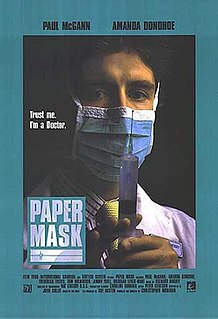
Paper Mask is a 1990 British drama film directed by Christopher Morahan and starring Paul McGann, Amanda Donohoe and Tom Wilkinson. The screenplay concerns a hospital porter who decides to impersonate a doctor in a busy hospital. The film was based on a 1987 novel by John Collee, who also wrote the screenplay.

Romanticism was an artistic, literary, and intellectual movement that originated in Europe toward the end of the 18th century. Scholars regard the publishing of William Wordsworth's and Samuel Coleridge's Lyrical Ballads in 1798 as probably the beginning of the movement, and the crowning of Queen Victoria in 1837 as its end. Romanticism arrived in other parts of the English-speaking world later; in America, it arrived around 1820.